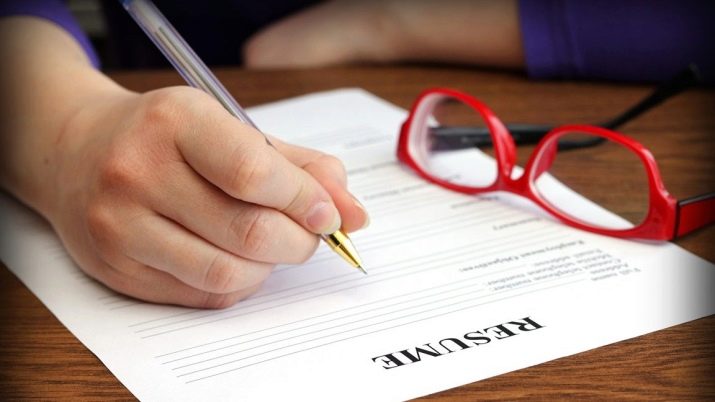Office manager: who is he and what does he do?

In modern business, no company with an office can do without the work of an office manager. This position involves administering and managing the office workflow of an organization.
Who is that?
Essentially, an office manager is that informative and leading link where all the working moments of the company converge and are resolved. He interacts between the head and subordinates, informs ordinary employees about the documents signed by the head, interacts with the company's clients, monitors correspondence, monitors the company's performance and provides the office with an office, carries out direct instructions from the director and his deputies.
Office manager is an employee who provides the entire office with a full-fledged workflow. The description of the profession will help you better understand the essence of the work.

According to the classifier of blue-collar professions and positions of employees, the profession of an office manager and his duties differ significantly from the profession of a secretary. An office manager is, first of all, an organizer of the company's office space, a manager and an administrator in one person. The secretary profession implies his subordination to a specific person (director, deputy directors, top managers) and conducting only his affairs.
The duties of the secretary include: maintaining the schedule of the head, his correspondence, the implementation of specific assignments. The secretary is only in charge of the affairs of his immediate supervisor and does not interfere in the affairs of the office.
The office manager controls all the current work of the office, mainly paperwork. Monitors uninterrupted work of office equipment, provides employees of the company stationery, in time brings to the attention of employees orders, orders and announcements in the office, issued by the head, accepts incoming phone calls, if necessary, keeps a calendar of meetings and trips of the director. In this case, the vacancy is called “office manager with secretarial functions”.

Responsibilities and functions in the company
Since the work of an office manager includes organizational, informative and administrative actions, his job responsibilities include certain functional tasks. This is precisely where the employment and the essence of the office manager's activity lies, who must:
- prepare office work for a new working day: check the operation of telephones, computers and office equipment, the availability of consumables (paper, refilled printer cartridges);
- control, maintain cleanliness in office premises, compliance with sanitary standards (full lighting, ventilation, temperature conditions in the premises), check the operation of split systems;
- timely procure stationery and provide them with office workers on time;
- order drinking water, detergents, toilet paper, napkins;
- control the current document flow: prepare the necessary documents, reporting, working materials necessary for the full-fledged work of the office, solve other working moments and tasks;
- monitor the work of the driver and courier on a daily basis;
- according to the instructions of the head, the office manager is responsible for the distribution of duties among employees, sets tasks for them, brings to their attention the necessary working information, determines the level of their responsibility, analyzes the effectiveness of the result;
- calculate and estimate monthly financial costs for the maintenance of the office, monitor its implementation;
- keep a time sheet, the number of days and hours worked by each employee within a calendar month, timely transfer the timesheet to the accounting department for payroll;
- monitor compliance with labor discipline: on the fact of being late, early leaving work, absenteeism of employees, notify the company's management, keep a record of violations and non-observance of the dress code;
- organize meetings, register and help visitors in solving their questions.

The main competencies of an office manager include the preparation and conduct of negotiations, meetings, meetings:
- he must carry out the preparation of all the necessary materials, ensure the attendance of all interested persons at the events, keep the minutes of the meeting;
- carry on correspondence with clients and partners of the firm, send out materials;
- work with incoming and outgoing office correspondence, register it, engage in shipping;
- provide assistance and assistance to employees in solving conflict and disputable situations;
- coordinate office work at the end of the working day, check office equipment, lighting, split systems, air conditioners for their disconnection from the power supply;
- in some cases, the office manager is responsible for finding and hiring new employees (places information about the necessary vacancies on special sites, looks through the resume, pre-selects applicants, conducts an interview);
- informs potential clients in writing or by phone on the cost of goods and services according to the price list;
- advises on the location of company departments, their functions;
- maintains a customer base enterprises;
- performs the duties of maintaining the site, placing advertisements about goods and services, orders souvenirs, printing, distributes information materials.

Requirements and qualities
To become an office manager, a candidate must have the key skills required to do the job, as well as have certain personal and professional qualities.
Personal
Personal qualities of a person are the biological and social components that make up his personality. Biological components a person receives from nature, his parents and ancestors in the form of a certain set of genes. Social component - this is the social environment in which a person grew up and was brought up.
Both of these components shape character and personality, endowing the individual with certain qualities, both good and negative. By bringing together all the personality traits of a person, you can get an objective, reliable psychological portrait.

The positive personality traits include such character traits as:
- honesty;
- perseverance in achieving the set goal;
- attentiveness;
- self-discipline;
- responsibility and organization;
- hard work, perseverance;
- inner nobility;
- objectivity;
- sociability, politeness, friendly attitude towards people;
- composure, dedication, attentiveness, punctuality;
- conflict-free, ability to resolve controversial situations between employees, optimism and positiveness in everything;
- quickness, quick wits, helpfulness;
- activity, ambition.

Behind each of these personality traits is the psychological and emotional upbringing of a person, his heredity, the social environment in which he grew up.
A person with an explosive, hot-tempered character, poorly adapted in a social environment, quarrelsome and quarrelsome is not suitable for the position of an office manager.
The negative personality traits include:
- lack of assembly, inattention;
- depressive outlook on life, lack of optimism;
- inability to collect thoughts on time and consistently solve assigned tasks;
- aggressive character;
- a tendency to gossip and intrigue.

Business
The business qualities of a person are his ability to perform certain labor tasks and functions.
The most important of them are the presence of successful experience and the level of education, as well as personal and business qualities of a person, which are closely intertwined.
By business qualities, one can judge how efficiently the applicant will be able to organize his work process, how well he will perform the work duties assigned to him. To successfully manage an office, an applicant must have, in addition to knowledge and skills, certain business qualities, which include:
- education, skill level;
- work experience;
- quick learning, adaptation in new conditions;
- exactingness towards oneself and others;
- the ability to work in a multitasking environment, simultaneously solve several issues at once;
- analytical thinking, the ability to think flexibly and outside the box, draw correct conclusions, generalize;
- business acumen;
- leadership skills;
- willingness to work overtime;
- oratorical skills, diplomacy and persuasion skills;
- business communication skills.

Professional
The professional qualities of a person are a combination of personal and business qualities, plus all the skills that he has acquired over the course of his career. In his professional activity, an office manager must:
- have certain knowledge, skills and abilities in the field office management;
- professionally apply your knowledge and skills in practice;
- be able to work with documents, know the principles of organizing document flow, the rules for creating an archive;
- be a confident computer user and other office equipment;
- thoroughly know the workflow process, work with incoming and outgoing mail, know the rules for registering it, promptly bring the head's resolutions to the structural divisions, monitor the deadlines for the execution of documents signed by the company's employees, send outgoing correspondence by mail or courier;
- have administrative management skills;
- be able to type quickly, know the principles and rules for drawing up certain documents (orders, orders, instructions, decrees);
- promptly dispose of useful knowledge (contacts of emergency services, electrician, plumbing, lunch delivery service);
- know foreign languages (not always), although in some companies knowledge of a certain foreign language is the main condition for the candidate, and in this case the office manager must speak, read and write fluently in a foreign language;
- be able to speak and write competently, express your thoughts in good literary language;
- own business etiquette skills.

Education and professional development
Not a single higher educational institution teaches the profession of an office manager. You can take training and receive a diploma or a certificate of vocational training in budgetary or private training centers, colleges.
The profession of an office manager is in great demand; it can be mastered in refresher courses with a different basic education. Each employer has its own requirements for the candidate for this position.
In large companies, as a rule, they want to see a specialist in this position only with a higher education, small enterprises can hire an employee with a secondary or specialized secondary education for this position.
The main thing that any employer pays attention to is work experience in this position, level of computer skills, knowledge of office equipment and the ability to work on it, knowledge of the basics of office work and archiving, Knowledge of foreign languages.

What to write on your resume?
In order to correctly write a resume and get the coveted position, you need in detail, but honestly state all information about yourself: personal, professional, business qualities, work experience in a similar position, level of education.
When compiling a resume, you need to take into account the specific requirements of the employer indicated in the vacancy announcement. Be sure to indicate the purpose of getting the job - this can be a specific position or a list of positions for which the applicant is applying.
The level of expected wages will make it clear to the employer what he can offer and what the candidate is applying for.
Do not give false information about work experience, education - all this can be easily checked, in this case the vacancy for the applicant will become unavailable, he will simply be refused.

Having a photo is a positive moment for a candidate, the employer must know whose resume is being considered. The office manager is the face of the company, and the employer is not indifferent to who will represent it.
Be sure to indicate the level of your education, often the employer for this position takes a specialist with a higher economic, legal, psychological or philological education.
In the resume, it is necessary to reflect several previous jobs, the reasons for dismissal, the contacts of people who can be called and inquired about the experience and personal characteristics of the candidate. It is advisable to write about your marital status, hobbies and hobbies.
Such information will be useful to the employer.
When writing your resume, stick to its structure:
- personal information - name, age, contacts;
- personal - the section is considered optional, but it is better to fill it out;
- basic skills and abilities - indicate what office programs you own, list all refresher courses, seminars, trainings, other additional training that you have completed;
- work experience - list all your practices, internships, completed projects, volunteer programs, in chronological order, indicate the enterprises where you worked before, education and trainings (reflect all educational programs and directions that you graduated from);
- recommendations - in this section, indicate the names and contacts of persons who can recommend you to a new employer, and give a positive feedback about you.

The resume should be written clearly and concisely, there should not be any unnecessary information in it.
If an applicant with no work experience is applying for the position of office manager, then it would be better not to include this section in the resume at all. There is no need to show the employer the lack of knowledge and skills. In this case, it is better to describe your personal and business qualities, what kind of education you have basic and additional (seminars, trainings).
Describe yourself as a hardworking, assiduous, executive, fast learner. Do not underestimate your talents and abilities, do not clutter your resume with unnecessary information.
As work experience, you can indicate industrial practice, pre-diploma internship, skills in organizing specific events, participation in olympiads, conferences, competitions, and all kinds of tests. If you have any achievements and successes directly related to future work, be sure to state this information in your resume.








